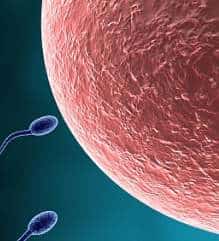It is scientifically proven that infertility in a couple is related to both partners. Only one-third of infertility cases are related to the female in a couple, while another third is related to the male, and the cause of infertility in a couple for the final third is either related to both the male and the female or the precise cause for the infertility is simply unexplained.
Causes of Infertility in a Couple
The main causes of infertility in women
Ovulation disorders
Ovulation disorders mean that a woman doesn’t ovulate often, or not at all. Some common ovulation disorders are:
- Polycystic ovary syndrome (PCOS): This is the most common cause of infertility for women, in which a hormone imbalance inhibits ovulation.
- Primary ovarian insufficiency (POI): With POI, a woman’s body either attacks its own ovarian tissue or eggs are lost prematurely, before the age of 40. It also results in decreased estrogen.
Tubal infertility
Fallopian tubes can become blocked or damaged. Causes include:
- Pelvic tuberculosis: This is a common cause of tubal infertility worldwide, although it is not common in the United States.
- Pelvic inflammatory disease: This is an infection caused by sexually transmitted diseases.
Endometriosis
This occurs when uterine tissue grows in other locations. Tissue growth and any surgery done to remove it can cause scarring, which can keep the egg and sperm from connecting or disrupt implantation of a fertilized egg.
Cervical or uterine causes
Cervical or uterine causes can interfere with implantation of the fertilized egg and increase the incidence of miscarriage. Some causes include:
- Fibroids or myomas: These are common in the uterus, and sometimes they can block the fallopian tubes or disrupt implantation of a fertilized egg.
- Uterine abnormalities: An abnormally shaped uterus can be something a woman has from birth and can cause problems with conception or increase the incidence of miscarriage.
- Cervical stenosis: A narrowing of the cervix that can be inherited or can be caused by damage to the cervix.
The main causes of infertility in men
Health causes
Some health causes may include:
- Drug use: Steroids taken for muscle strength and growth can cause low sperm production. Cocaine or marijuana use may reduce number and quality of sperm temporarily as well.
- Alcohol use: Use of alcohol can decrease testosterone, cause erectile dysfunction, and result in low sperm production.
- Smoking: Smoking may also decrease sperm production.
Medical causes
Some of these include:
- Variocele: A variocele is a common cause of infertility. It prevents cooling of the testicles, resulting in lower sperm count and motility.
- Infection: Infections such as STDs or inflammation of the prostate can interfere with the production or health of sperm, or cause scarring that blocks sperm passage.
- Celiac disease: This digestive disorder can cause male infertility, but it may be able to be reversed with a gluten-free diet.
Environmental causes
A newer study shows that of couples with unexplained infertility, 80% may be due to poor sperm quality. Causes include:
- Industrial chemicals: Extensive exposure to chemicals such as benzene, pesticides, herbicides, organic solvents, or paint may result in low sperm production.
- Heavy metal exposure: Exposure to heavy metals such as lead may cause infertility.
- Overheating: Sitting for extended periods, wearing tight clothes, or setting a laptop directly on the lap may slightly reduce sperm production. Using saunas or hot tubs may also lower sperm count temporarily.
Unexplained Fertility
Infertility in a couple can be extremely difficult to diagnose in some cases, leaving both parties wondering why they cannot conceive. A combination of many small factors in both the male and female may be at fault. Sometimes these problems may self-correct and the couple may be able to conceive. Unfortunately for some experiencing infertility in a couple, approximately ten percent, they will continue to have difficulty becoming pregnant. In this case, the couple may need to explore other options for having a baby.
Have you experienced infertility in a couple? What was the cause and what measures did you take to increase your fertility?


